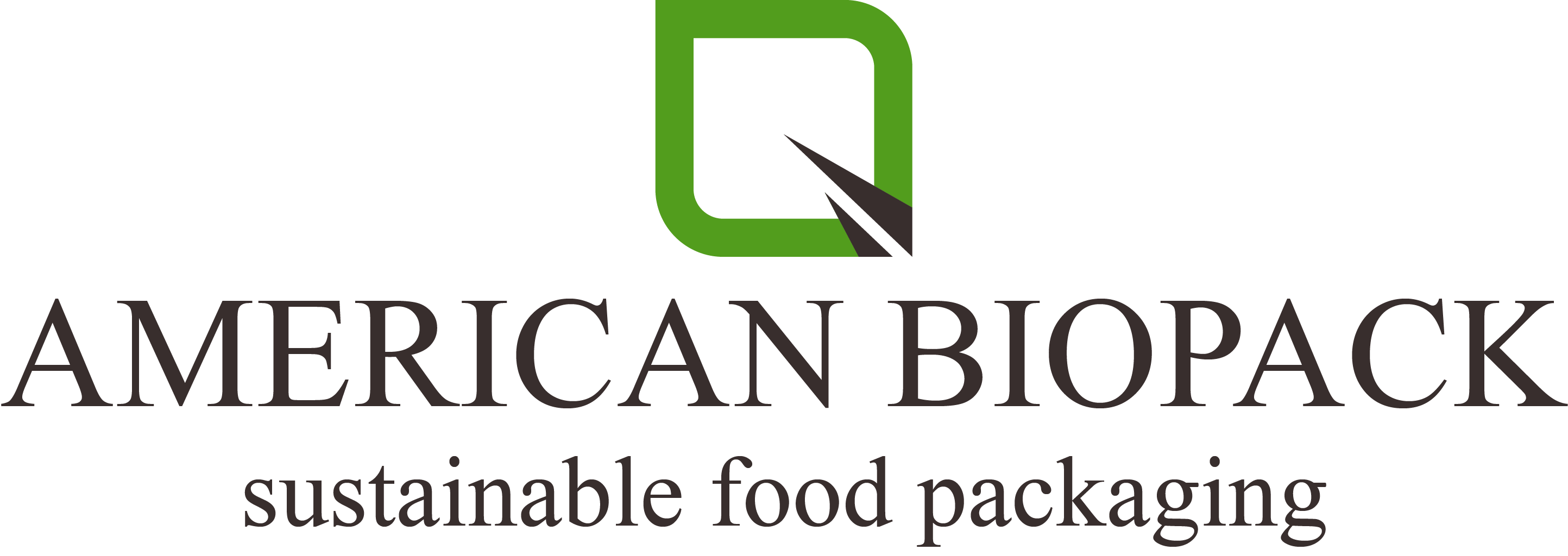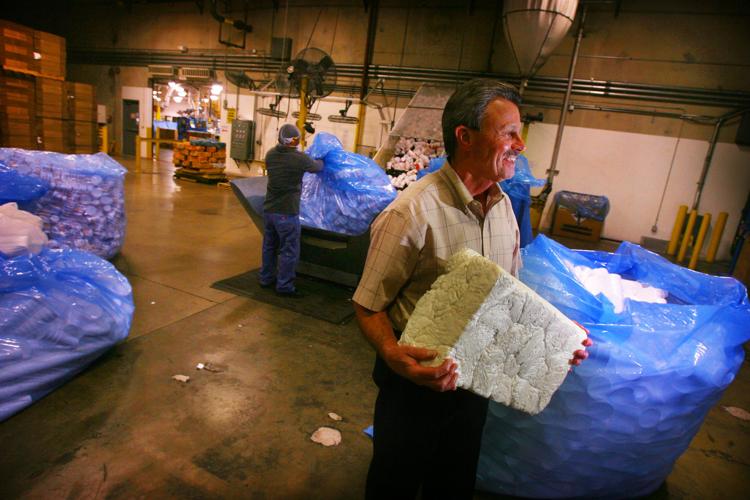Manhattan Beach wants to ban foam meat trays, but experts warn of ‘unintended consequences’
Manhattan Beach, the second city in Southern California to ban plastic bags, prides itself on being a local leader in environmental legislature.
But the city may be caught on a meat hook when it comes to polystyrene.
Local officials are seeking to ban foam meat trays, a move environmentalists overwhelmingly support.
But, there may be unforeseen outcomes, such as more trash and the discontinuation of certain products offered in Manhattan Beach, according to grocery industry experts.
At a city council meeting Feb. 19, city staff proposed an outright ban on polystyrene meat trays, identifying recyclable plastics as a potential alternative and citing bans in other cities such as Malibu.
However, Manhattan Beach officials decided to hold off on the decision after Tim James, senior manager of local government relations for the California Grocers Association, warned of ‘unintended consequences.’
James asked for more time on behalf of the grocery industry to coordinate with the city.
He said there was a lack of process and outreach which had led to a lot of misinformation regarding suitable alternatives to polystyrene as well as misleading comparisons to other jurisdictions.
“The city hasn’t done the outreach to understand this and that’s why we ask them for a significant delay to walk them through these conversations,” James said in a Feb. 20 interview. “Last night there was a lot of misinformation presented and so we feel they are not making a decision based on accurate, real world information, hence the request for the delay.”
A lack of process?
James said grocers at the local and corporate levels were not made aware of the potential ban until the council agenda was publicized online Thursday, Feb. 14, giving the industry limited time to communicate concerns.
He provided The Beach Reporter with emails from several grocers, including Ralphs, Albertsons, Vons, Pavilions, Gelson’s and Bristol Farms, which owns Lazy Acres, confirming the city had not attempted to contact them.
These emails were also copied to city officials.
Manhattan Beach staff did not immediately respond to request for comment on Wednesday regarding communication with stores or industry representatives.
But at the Tuesday, Feb. 19 council meeting, Anne McIntosh, the Manhattan Beach community development director said the California Grocers’ Association has been following this issue since last April.
“We have had ongoing communications with them,” she said. “I want to reiterate I believe we have gotten all the information we could possibly get in order for staff to make a positive recommendation on the elimination of polystyrene meat trays.”
Understanding alternatives
At the Feb. 19 meeting, city staffers said polystyrene is particularly problematic because it breaks down into small bits, and identified trays made out of recycled plastic as a potential alternative.
“In our stores, our grocers already have many raw meat products in recycled plastics,” said Dana Murray, the city’s environmental sustainability manager, showing photographs from the local Vons on Manhattan Beach Boulevard.
As an expert of the grocery industry, James explained recycled plastics were not a feasible alternative for several reasons.
“The stiff packaging has sharp edges and can easily become cut which then becomes a (food) safety issue,” James said.
He also said the plastic packaging shortens the shelf life of the meat, creating more food waste, and that the machines needed to complete this type of packaging are too large for most grocers to use in-store.
He added products in plastic come that way because the manufacturer packages them, but that most meats are cut and packaged in-store.
James said compostable trays were the only safe and feasible alternative to the polystyrene, but noted Manhattan Beach currently does not have a compostable program.
“An outright ban on polystyrene would push grocers to use compostable food packaging which just becomes trash because Manhattan Beach cannot properly dispose of it,” James said. “You’re just trading out one piece of trash for another with zero environmental benefit. If Manhattan Beach had a compostable infrastructure, this would be a completely different conversation.”
Dangerous comparisons
Instances of polystyrene bans in other jurisdictions, such as San Diego, Malibu and San Francisco, were also noted at the Feb. 19 meeting as examples of how such a prohibition is possible.
“The aim for many of the cities that have moved away from polystyrene meat trays…is to go towards less environmentally damaging products that can made out of recycled products and recycled,” Murray explained.
But, that’s not the whole story in those cities, according to James, who called comparisons between cities ‘dangerous’ at the meeting.
He explained each jurisdiction has its own specific details—such as a curbside compostable program in San Francisco and an exemption program in San Diego which allows the foam trays for meat packaging specifically.
James cited Malibu as the only city with a similar situation to Manhattan Beach, explaining the ordinance banning polystyrene there has led to many products no longer be offered in the city, as well as some being repackaged.
He added Malibu also has no compostable program.
“The industry response has since been forced to discontinue the sale of hundreds of meat products which have non-compliant food packaging,” James said in a Feb. 20 email.
Mayor Steve Napolitano raised the concern at the council meeting of whether meat and other products packaged in polystyrene were being removed and then repackaged in other materials to meet isolated cities’ codes, creating a double waste effect.
“Are we truly eliminating it, because… do (stores) then take Styrofoam, throw that away and repackage into plastic after that? Is Styrofoam taken out of that chain altogether, do we know that?” Napolitano inquired.
While James could not provide an answer to this at the Feb. 19 meeting, he confirmed to The Beach Reporter Feb. 20 that, in some cases, stores in Malibu were not receiving products packaged in polystyrene in order to comply with the ban.
“The repackaging of meat products was considered, but due to traceability requirements and safety concerns was not pursued,” James said in an email, foreshadowing what could become the case should a ban pass in Manhattan Beach.
“We understand that meat sales in Malibu is currently down 10-15 percent based on this impact. A likely reason is consumers are simply shopping for meat products in neighboring jurisdictions.”
James received further updates from local grocers in Malibu and confirmed to The Beach Reporter Feb. 21 that some products in the city were indeed being re-wrapped to meet compliance, meaning there was double the amount of waste being produced in those cases.
“There are raw meat products which are being repackaged by Grocers into compliant packaging in Malibu,” he added. “This means meat products are being stripped of their original packaging which is then being discarded and repackaged in compostable packaging. Malibu does not offer curbside composting infrastructure so both the original and the new packaging are being placed in the trash.”
Council divided while city remains largely passionate
In a 3-2 split vote Feb. 19, council decided to extend the decision to March 6 in light of James’ warning.
“I don’t think anyone is against the environment here. I do have some issues with unintended consequences though,” said Napolitano. “I want to make sure that we’re not adding to waste and actually taking away from the waste. I do want to know what the consequences would be.”
Councilmember Amy Howorth, who will be termed out after the March 5 election, and Mayor Pro Tem Nancy Hersman dissented against the decision to wait.
“We don’t need to lead just to be leaders, we need to lead because we care about people and the planet,” Howorth said. “I would like to do it while I’m still on council.”
Members of the local community, including students from Mira Costa, families, surfers and environmentalists, came out in droves to the meeting Feb. 19 to speak in favor of the ban.
“Plastic pollution is a major contaminate in our oceans around the world,” said Nick Sadrpour, a Science, Research and Policy Specialist with the Sea Grant Program at University of Southern California. “Although clean up efforts to remove plastic from beaches and the ocean have merit and help illustrate the issue, the true solution is preventing these debris from entering waterways and coastal environments in the first place.”
Updated Feb. 21, 2019 to reflect new information received by Tim James, senior manager of local government relations for the California Grocers’ Association regarding compliance of polystyrene ban in Malibu.
**Updated 3/1/19 to indicate San Diego has an exemption program for meat packaging, not a flat out exemption.


